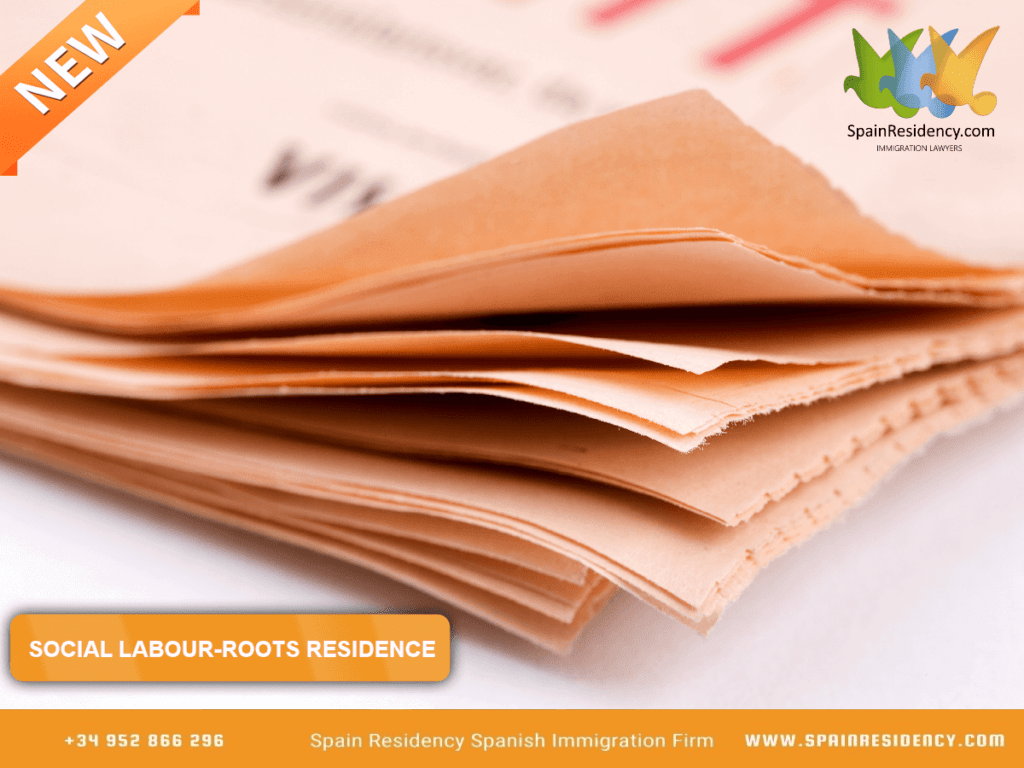Significant changes are happening to the legal framework for the arraigo-residences in Spain, including the introduction of a new category called Social labour-roots Residence, where a draft law has been drawn-up, which has already been approved.
This will be one of the biggest changes focuses on the Arraigo-residence categories.
Menu:
In this post we cover the following: (click any section to see its content)
Social labour-roots Residence:
SOCIAL LABOUR-ROOTS RESIDENCE:
Social Labour-Roots Residence, which with a work contract will replace the current Social-Arraigo. This new Social Labour-Roots Residence permits foreigners residing in Spain under irregular circumstances to regularize their status through a residency permit based on exceptional circumstances.
The key difference here is the reduction in the required period of residence in Spain, from three years to just two, making it quicker to apply for this residency permit. The process will remain rigorous, but the time reduction makes it more accessible.
Another notable update is that applicants will no longer be required to submit a social integration report, which has been a major hurdle for many. In some regions, obtaining these reports could take up to eight months, especially in places like Catalonia, where language tests and other requirements can be demanding.
Regarding work contracts, while it’s not entirely clear what type of contract will be required under the new law, it is most likely to be a full-time, indefinite contract.
The biggest difference between Social Arraigo and Social Labour-Roots is that the new category will only be available to individuals who have a work contract. At current Social Arraigo permits can be granted based on family ties, personal economic means, or self-employment. However, the new Social Labour-Roots residence will focus solely on those who can secure employment.
If an applicant has family ties or personal economic means, they may need to apply under different Arraigo categories. This is how the draft law currently reads and is expected to be implemented.
These changes will benefit many foreign workers who already have a job offer, allowing them to enter the workforce sooner and contribute to Spain’s welfare system through taxes and social security contributions.
ALL TYPES OF RESIDENCY AVAILABLE IN SPAIN:
- Golden-Visa Spain (residence in Spain by investment)
- Non-Lucrative visa Spain (Spanish visa non lucrative)
- Self-Employed visa Spain (self employed expats in Spain)
- Digital-Nomad visa Spain (remote worker in Spain)
Please see-here our video-blog with options and legal-advice to obtain residency in Spain.
Remember that immigration procedures and immigration regulations change regularly, so it’s crucial to stay updated with the latest information from reliable sources. If you have specific questions or concerns about your situation, it’s advisable to consult with immigration authorities or legal professionals specializing in immigration matters, to do this, please click-here »
DO YOU REQUIRE ASSISTANCE TO APPLY FOR RESIDENCE OR CITIZENSHIP IN SPAIN?
We are a Spanish Solicitor and assist our clients with all types Spanish legal processes.
Permanent residency is obtained after 5 years of Spanish Residency through Self-Employed Residency, Digital-Nomad, Non-Lucrative Residency or Golden-Visa. This followed by 5 years as a permanent resident in Spain and means you can then obtain Spanish Citizenship with a Spanish Passport.


